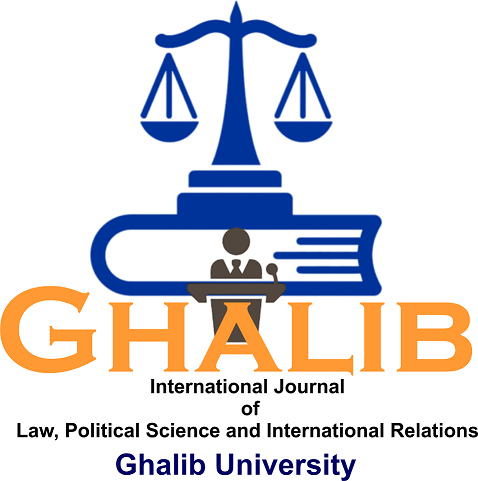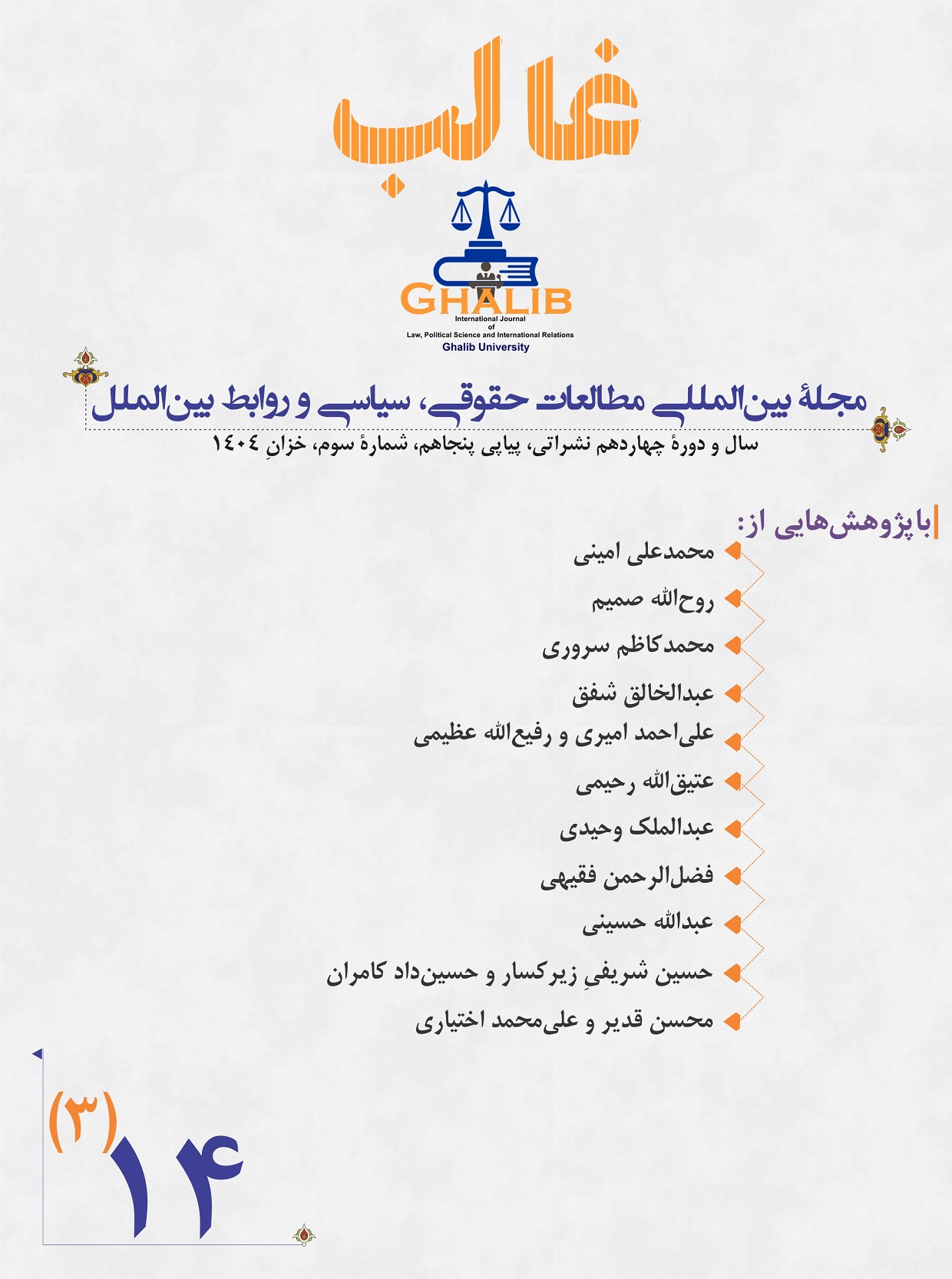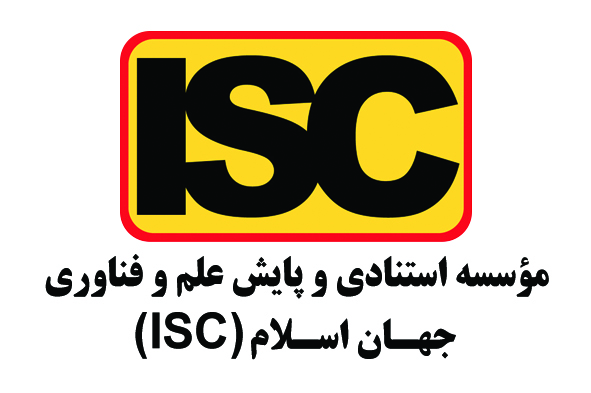دیوان جزایی بینالمللی و مرزهای حاکمیت دولتها: کاوشی در معمای اجرا
DOI:
https://doi.org/10.58342/ghalibqj.V.14.I.3.10واژهگانِ کلیدی:
حاکمیت، دولت، دیوان کیفری بینالمللی، صلاحیت، صلاحیت تکمیلیچکیده
با تحقق جنایات بینالمللی در قرن ۱۹ میلادی، دولتها جهت برقراری نظم، امنیت و صلح بینالمللی دیوان کیفری بینالمللی را ایجاد کردند تا به جنایات بینالمللی رسیدهگی نمایند. با گسترش تعاملات سیاسی هدفمند دولتها و سلطهطلبی بعضی از کشورها بر دیگران، آنان اجرای احکام دیوان کیفری بینالمللی را مغایر با منافع خود دانسته و از اجرای آن خودداری میکنند. از این جهت، بررسی عدم اجرای احکام دیوان، در عرصۀ بینالمللی حایز اهمیت است. هرچند، تأمین نظم و امنیت بینالمللی ضرورت بر تحقیق چنین موضوعی دارند. هدف این تحقیق، تبیین مرزهای حاکمیت دولتها و بررسی صلاحیتهای دیوان کیفری بینالمللی با هدف کاوش در معمای عدم اجرای احکام آن از سوی دولتهاست. پژوهش حاضر با بررسی نحوۀ اعمال صلاحیت دیوان کیفری بینالمللی و بررسی حاکمیت دولتها، به روش توصیفی – تحلیلی و با استفاده از منابع کتابخانهیی و اینترنتی، در صدد پاسخگویی به این پرسش بوده است که: دلایل عدم اجرای احکام دیوان از سوی دولتها چه میباشند؟ یافتههای تحقیق نشان میدهد که اجرای احکام دیوان نهتنها مخالف حاکمیت دولتها نیست، بلکه بهمنظور رعایت حقوق بشر و حفظ نظم بینالمللی ضروری است. چنانکه دولتهاییکه براساس اساسنامه و احکام دیوان کیفری بینالمللی عمل نمیکنند، ناشی از قدرتطلبی، کسب منافع اقتصادی، فقدان مکانیزم اجرایی قوی و حفظ ایدئولوژیهای سیاسیشان در تعاملات با دیگر کشورهاست.
سرچشمهها/ منابع
Aftab News. (2024, September 4). “American media: By not arresting Putin, Mongolia dealt a heavy blow to the International Criminal Court.” https://aftabnews.ir/003ut2 [In Persian]
Ahmad Reza Soleymanzadeh & Hasti Kousha. (2016). Provisional measures and their enforcement in the International Court of Justice. International Studies Journal, 13(1), 59–92. https://www.isjq.ir/article_91284.html [In Persian]
Ali Hassan Babaei, Ahmad Reza Tohidi, & Mahmoud Qayoumzadeh Kharanaghi. (2020). The requirement of prosecution in the International Criminal Court: A comparative study with national systems. Journal of Criminal Law Research, 8(31), 75–105. https://doi.org/10.22054/jclr.2020.39628.1860 [In Persian]
Ali Reza Dahim. (2001). An Introduction to International Criminal Law (in the light of the Rome Statute of the ICC). Tehran: Ministry of Foreign Affairs Publishing. [In Persian]
André Klip. (2004). Complementarity and concurrent jurisdiction in the Rome Statute of the ICC (Translated by Mehdi Hadadi, 2005). Fiqh & Law Quarterly, 2(6), 163–183. https://hoquq.iict.ac.ir/article_22721.html [In Persian]
Anthony Giddens. (2005). Sociology (Translated by Manouchehr Sabouri). Tehran: Ney Publishing. [In Persian]
Antonio Cassese. (2008). International Criminal Law (Translated by Zahra Mousavi Ardashir & Hossein Piran). Tehran: Jangal-e Javidaneh Publishing. [In Persian]
Bassiouni, M. Cherif. (2012). Introduction to international criminal law (2nd rev. ed.). Leiden / Boston: Brill Nijhoff. Retrieved from https://brill.com/display/title/16412?language=en
Castel, Jean-Gabriel. (1971). Recognition and enforcement of foreign judgments in personam and in rem in the common law provinces of Canada. McGill Law Journal, 17(1), 11–188. Retrieved from https://lawjournal.mcgill.ca/article/recognition-and-enforcement-of-foreign-judgments-in-personam-and-in-rem-in-the-common-law-provinces-of-canada/
Charter of the United Nations (1945). [In Persian]
Dicey, Albert Venn., Morris, John Humphrey Carlile., & Collins, Lawrence. (Eds.). (2000). Dicey and Morris on the conflict of laws (13th ed.). London: Sweet & Maxwell.
Didier Roubeau. (2020). International Criminal Law (Translated by Behzad Razavi Fard & Mohammad Faraji). Tehran: Mizan Publishing. [In Persian]
Ebrahim Beigzadeh. (1996). The principle of legality and the principle of opportunity in criminal prosecution. Legal Research Journal, 3(2), 36–72. http://noo.rs/5ARQ3 [In Persian]
Farhad Mirsadeghi. (2023, March 17). “The ICC issues arrest warrant for Vladimir Putin.” Euronews Persian. https://parsi.euronews.com/2023/03/17/international-criminal-court-issues-arrest-warrant-for-russian-president-vladimir-putin [In Persian]
Ferencz, Benjamin Berell. (1992). An international criminal code and court: Where they stand and where they’re going. Columbia Journal of Transnational Law, 30(2), 375–399.
Fereydoun Jafari. (2012). The conflict between politics and justice in the Rome Statute. Private Law Studies, 42(3), 107–126. https://dor.isc.ac/dor/20.1001.1.25885618.1391.42.3.7.6 [In Persian]
Geoffrey Robertson. (2004). Crimes Against Humanity (Translated by the Research Group of Islamic Sciences University). Mashhad: Astan Quds Razavi. [In Persian]
Hessam Naqibi Mofrad & Hossein Sharifi Tarazkouhi. (2010). Good governance in the light of globalization of human rights. Tehran: Shahre Danesh Legal Institute. [In Persian]
Homayoun Mafi. (2015). Reflections on sanctions in public international law. Comparative Law Journal, 1(2), 115–159. https://dorl.net/dor/20.1001.1.24237566.1394.1.2.5.1 [In Persian]
Hossein MirMohammadSadeghi. (2021). The International Criminal Court (10th ed.). Tehran: Mizan Publishing. [In Persian]
Hossein MirMohammadSadeghi. (2022). International Criminal Law (7th ed.). Tehran: Mizan Publishing. [In Persian]
International Criminal Tribunal for the Former Yugoslavia (ICTY). (1995). The Prosecutor v. Dusko Tadić (Case No. IT-94-1-T). Decision on the Defence Motion for Interlocutory Appeal on Jurisdiction, 2 October 1995. Retrieved from https://www.icty.org/x/cases/tadic/acdec/en/51002.htm
Jackson J. Spielvogel. (2014). Western Civilization (Translated by Mohammad Hossein Arya). Tehran: Amir Kabir Publications. [In Persian]
Javad Tahmasbi. (2016). Jurisdiction of the International Criminal Court. Tehran: Mizan Publishing. [In Persian]
Kefayat Salehi, et al. (2019). Complementary jurisdiction of the ICC. Iranian Journal of Political Sociology, 2(3), 424–451. https://doi.org/10.30510/psi.2022.346302.3559 [In Persian]
Kiyani, Asad Ghaffar. (2016). International crime and the politics of international criminal theory (Doctoral dissertation, University of British Columbia). Vancouver: University of British Columbia Library. http://hdl.handle.net/2429/56722
Köchler, Hans. (2006). Universal jurisdiction and international power politics: Ideal versus real. Yeditepe’de Felsefe (Philosophy at Yeditepe), 11(2), 1–20. Retrieved from http://hanskoechler.com/koechler-universal_jurisdiction-2006.pdf
Leon Alexander Sicilianos & Seyed Ali Hanjani. (2007). State responsibility for failure to prevent and punish international crimes. Legal Research Journal, 10(46), 225–241. https://lawresearchmagazine.sbu.ac.ir/article_56395.html [In Persian]
Mahmoud Saber. (2009). Prosecution procedures for crimes in the ICC’s Office of the Prosecutor. Private Law Studies, 39(2), 169–192. https://dor.isc.ac/dor/20.1001.1.25885618.1388.39.2.7.3 [In Persian]
Meysam Gholami & Seyed Mehdi Seyedzadeh Sani. (2020). The conflict between complementary and inherent jurisdiction of the ICC (Case of Saif al-Islam Gaddafi). Iranian Journal of International Politics, 9(1), 171–192. https://doi.org/10.22067/ijip.v9i1.84580 [In Persian]
Mohammad Javad Shariat Baqeri. (2006). Complementary jurisdiction of the ICC (Collection of International Criminal Law Articles). Tehran: Jangal-e Javidaneh Publishing. [In Persian]
Morteza Akbari Laimi. (2016). Exercising the right of self-determination: Confrontation between human rights and state sovereignty. Judicial Law Journal, 80(96), 59–77. https://doi.org/10.22106/jlj.2016.24707 [In Persian]
Nasim Soleimaninejad, Mohammad Reza Mojtahedi, & Farshid Bande Ali. (2023). Semantic analysis of the principle of non-intervention: Interactions with other fundamental principles of international law. Adl & Ensaf Comparative Legal Research Journal, 6(22), 40–60. http://www.aeclrjournal.ir/article_189403.html [In Persian]
Reynolds, John., Xavier, Sujith., & Kiyani, Asad Ghaffar. (2016). Third World approaches to international criminal law. Journal of International Criminal Justice, 14(4), 915–920. https://ssrn.com/abstract=2853688
Reza Maqsoodi Pashaki. (2022). Comparative study of comity and reciprocity in recognition of foreign judgments. Comparative Law Semi-Annual, 9(1), 221–244. https://doi.org/10.22096/law.2022.135555.1742 [In Persian]
Rome Statute of the International Criminal Court (1998). [In Persian]
Seyed Ghasem Zamani & Haleh Hosseini Akbarnajad. (2009). Universal jurisdiction in the mirror of the ICC. Public Law Research, 11(26), 203–243. https://qjpl.atu.ac.ir/article_2601.html [In Persian]
Seyed Ghasem Zamani. (2008). The ICC and the issuance of the arrest warrant for Omar al-Bashir. Legal Studies, 7(14), 13–47. https://jlr.sdil.ac.ir/article_43659.html [In Persian]
Seyed Hassan Mirfakharai. (2015). Revisiting the principle of non-intervention and the use of force in light of global developments. Political Studies Quarterly, 7(27), 23–46. https://sanad.iau.ir/Journal/jourm/Article/960379 [In Persian]
Seyed Saeed Ahmadi, Abolfazl Lotfizadeh, & Seyed Farshid Jafari Pabandi. (2022). The necessity of revising the principle of non-intervention in the light of emerging norms of human rights. International Studies Quarterly, 18(3), 143–164. https://doi.org/10.22034/isj.2022.314124.1657 [In Persian]
Shinkaretskaya, Galina Grigorievna., & Ryzhov, Vladimir Borisovich. (1998). Content and limits of ‘domaine réservé’. International Law and Municipal Law, 9(6). Retrieved from https://nbpublish.com/library_get_pdf.php?id=30043
Struett, Michael J. (2005). The transformation of state sovereign rights and responsibilities under the Rome Statute for the International Criminal Court. Chapman Law Review, 8, 172–192. Retrieved from https://digitalcommons.chapman.edu/chapman-law-review/vol8/iss1/8/
Svantesson, Dan Jerker B. (2007). Private international law and the Internet. Kluwer Law International, 3(3), 137–155. Retrieved from https://research.bond.edu.au/en/publications/private-international-law-and-the-internet-3
Tabnak News Agency. (2024, September 5). “EU anger over Putin’s trip to Mongolia.” https://www.tabnak.ir/fa/news/1257549/ [In Persian]
United Nations General Assembly. (1970). Declaration on Principles of International Law concerning Friendly Relations and Cooperation among States in accordance with the Charter of the United Nations (G.A. Res. 2625 (XXV), 24 Oct. 1970). Retrieved from https://treaties.un.org/doc/source/docs/A_RES_2625-Eng.pdf
United Nations General Assembly. (1996). Report of the Preparatory Committee on the Establishment of an International Criminal Court (U.N. Doc. A/51/22, Vol. II). New York: United Nations. Retrieved from https://digitallibrary.un.org/record/222882?ln=en
چاپ شده
ارجاع به مقاله
شماره
نوع مقاله
مجوز
حق نشر 2025 حسین شریفی زیرکسار،حسینداد کامران

این پروژه تحت مجوز بین المللی Creative Commons Attribution 4.0 می باشد.













